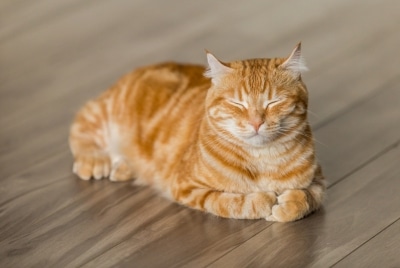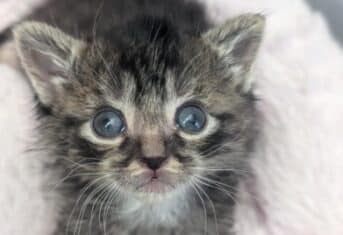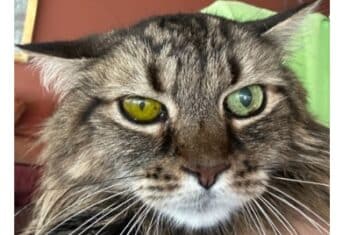When Senior Cats Change: Understanding Feline Cognitive Dysfunction

When Senior Cats Change: Understanding Feline Cognitive Dysfunction
June is Adopt A Cat Month, and here at the Schwarzman Animal Medical Center, we’re celebrating our feline friends with an entire month of blogposts devoted just to cats. I’m hoping many kittens and adult cats will find their “fur”ever homes this month.
While many new pet parents will welcome playful kittens, some will choose to adopt older cats—and today’s blogpost is for them. I’ll be discussing a set of behavior changes occurring in senior cats: feline cognitive dysfunction, a disorder similar to dementia in humans.
Is my cat exhibiting behavioral, medical or cognitive dysfunction?

The Feline Veterinary Medical Association (previously known as the American Association of Feline Practitioners) and the American Animal Hospital Association define a senior cat as ten years of age or older. Cat lovers will know that many ten-year-old cats do not seem that old, but when they get to 13 or 14, they often start to show signs of aging.
Cat families of these elderly cats often complain about poor litterbox usage. While this can be a sign of cognitive dysfunction, there are other causes that need to be ruled out before a diagnosis of cognitive function can be considered. These include:
- Arthritis, which can make high-sided litterboxes difficult to access
- Chronic intestinal disorder or urinary tract infection, which can affect litterbox habits
- Untreated hypertension, which can mimic cognitive dysfunction
If a medical evaluation determines the cat is healthy, then feline cognitive dysfunction becomes a more likely explanation.
What are the signs of feline cognitive dysfunction?
In addition to poor litterbox habits, families of senior cats often notice howling and pacing in the middle of the night and excessive sleeping during the day as their cat ages. Many notice their cat staring into space or getting “lost” in a corner. The behavior changes attributed to cognitive dysfunction in cats can be represented by the acronym VISHDAAL:
- Vocalization
- Interaction alterations
- Sleep-wake cycle changes
- House soiling
- Disorientation
- Alterations in activity levels
- Anxiety
- Learning and memory
If these behavior changes are happening in your cat, it’s time for a visit to the veterinarian.
Should my senior cat see a primary care or specialist veterinarian?
Since feline cognitive dysfunction is a neurodegenerative disorder, cat families might think their cat should see a neurologist. However, there’s no specific test for cognitive dysfunction. Medical and behavioral problems must be ruled out before making a diagnosis of cognitive dysfunction.
Your cat’s primary care veterinarian is well-equipped to perform the necessary diagnostic testing and treat disorders such as hypertension, arthritis and urinary tract infections. If the evaluation finds signs of a neurologic condition, then a neurology evaluation might be the next step.
What are the treatment options for feline cognitive dysfunction?
Unfortunately, like dementia treatment in people, effective therapies are limited for cats with cognitive dysfunction. The most promising treatments seem to be omega-3-fatty acids combined with antioxidants. Special diets containing these supplements are available to help maintain feline brain health.
Other promising compounds include S-adenosyl methionine, medium-chain triglycerides, homotaurine, and apoaequorin—but these require further study before we know if they are effective. Your veterinarian might also recommend prescription medications to modify the behavioral changes in your cat.
Does my cat’s environment make a difference?
Interestingly, research shows that cats living in rural environments develop signs of cognitive dysfunction less often than those in urban environments. The exact reason for this difference is unknown, but rural cats may engage in more physical activity, which is thought to improve brain health.
Be sure to provide plenty of exercise opportunities for your indoor cat. Check out another blogpost for pet exercise ideas.
Where can I learn more about cognitive dysfunction in senior pets?
For more information on cognitive dysfunction watch the video of a previous Usdan Institute for Animal Health Education event.

































